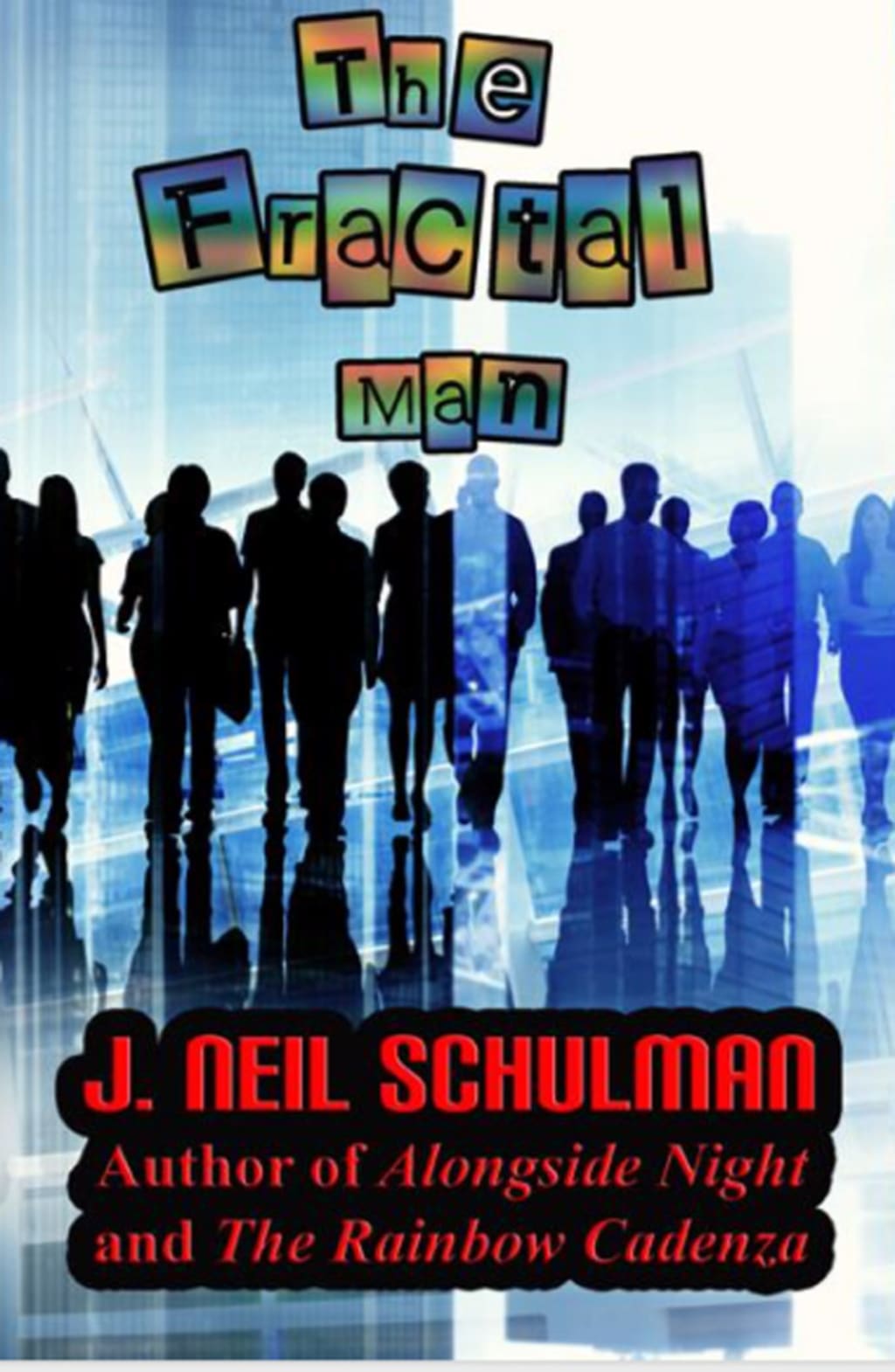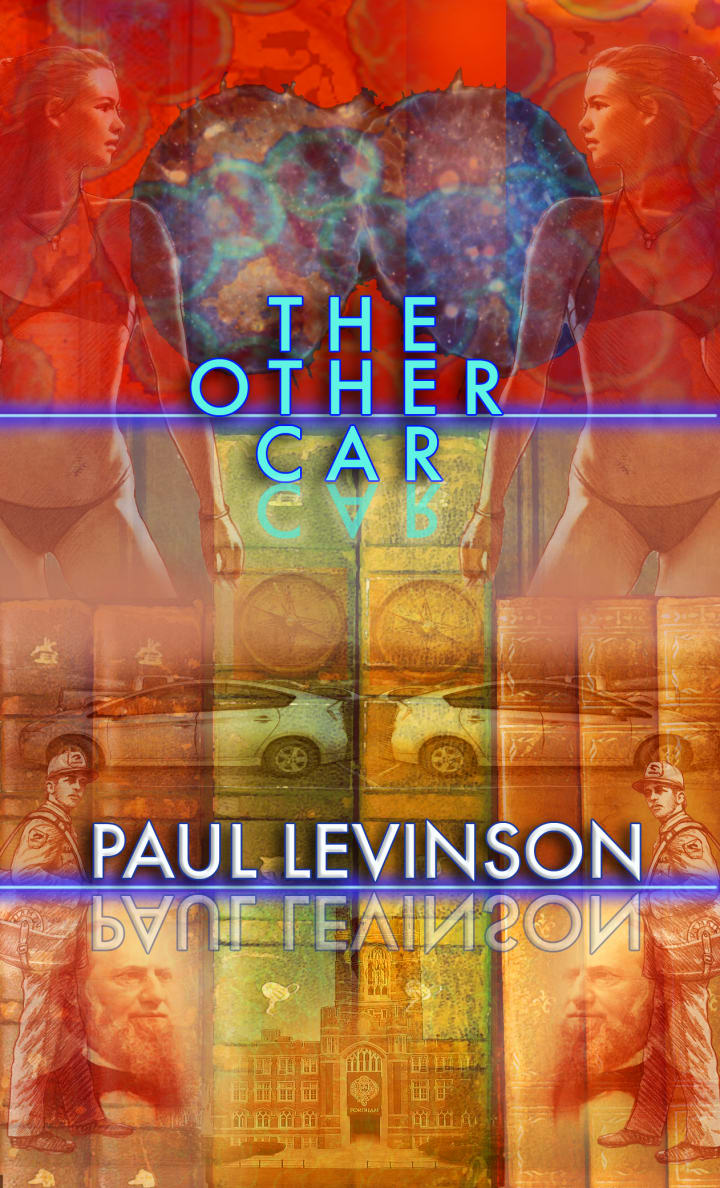Review of J. Neil Schulman's 'The Fractal Man'
Alternate Reality Autobiographies

Alternate realities have become something of a vogue in science fiction, especially on television with Fringe and Counterpart. I've even tried my hand at it in a few short stories such as "The Other Car." But J. Neil Schulman has outdone all of this with his novel The Fractal Man, which for most of its 160 some odd pages—meant literally as well as a figure of speech here—is not only a masterpiece of alternate reality, but one of the best science fiction novels I've ever read, literally.
It's also a tour de force of meta-fiction and autobiography. What do I mean by that? Well, the main character—the narrator—is David Albaugh, a character in Schulman's 1979 novel Alongside Night, played by Schulman in the 2014 movie that Schulman wrote and directed. In The Fractal Man, we meet Schulman—one of Albaugh's fractals, i.e., existences in an alternate reality—to the point of the character Schulman warning Albaugh about a danger that lies ahead, because, after all, Schulman wrote Albaugh's account of Albaugh's alternate reality adventures which is the novel The Fractal Man. I'd say I'm a sucker for that kind of science fiction, but if a I'm a sucker for delighting in that, then anyone with any appreciation for the finer tropes of science fiction, carried to their logical extents and well beyond, should be a sucker, too.
And the novel is chock full of tidbits to delight the science fiction devotee and anyone with a taste for new ways of thinking about old things. Distant galaxies that we see in our reality may be alternate timelines. Arguments that a couple may have over whether an event unfolded this way or that way may reflect an alternate reality that one of the couple for some reason came from or has access to. Everything from timeless music to time travel is woven into the undulating fabric. It's all served up so well that I don't even mind that Schulman and most of his alternates are thorough-going libertarians, in contrast to me (I'm an absolutist only about the government keeping its hands off of all media and communication, i.e., the First Amendment).
Schulman sprinkles in some of his real libertarian friends as greater and lesser characters in this novel. We know each other and have worked together, but I can't hold it too much against him that I didn't make the grade, because I'm not a close friend of his, and, as I said, I'm not an across-the-board libertarian. And he makes up for this with some derring-do espionage escapades across realities, and a galactic scope that reminds of both Asimov and Heinlein, which is no mean feat (Schulman, at least in this reality, did an important interview with Heinlein in 1973).
What I do hold against the novel is a long play within the novel, near the end, that has lots of relevance to the novel's philosophy and was excellent in and of itself, but comes out of left field, so much so that the reader is offered the option of skipping ahead. This doesn't exonerate the play's inclusion.
But, hey, the rest of the novel is so bright and wonderful—such an intellectually exciting and satisfying ride—that I put it up there with David S. Michaels and Daniel Brenton's Red Moon and David Walton's Three Laws Lethal (to be published in two days, look for my review) as one of the best standalone science fiction novels I've ever had the pleasure of reading. Is it a contradiction to describe The Fractal Man and its immersion in alternate realities as a standalone novel? There's a sequel afoot—"The Metronome Misnomer—the title comes from a fractal version of the author in The Fractal Man, who wrote a book of that title in an alternate timeline" (this quote from Schulman's biography at the end of The Fractal Man)—so you may not need to answer that.

About the Creator
Paul Levinson
Novels The Silk Code & The Plot To Save Socrates; LPs Twice Upon A Rhyme & Welcome Up; nonfiction The Soft Edge & Digital McLuhan, translated into 15 languages. Best-known short story: The Chronology Protection Case; Prof, Fordham Univ.






Comments
There are no comments for this story
Be the first to respond and start the conversation.